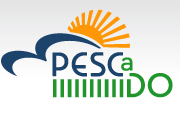Environmental Ontology Construction and Population
The objective is to guarantee the availability of ontology modules that ensure that (i) during the composition of distributed environmental node configurations the input/output of the individual nodes can be “leveled out”, with the ontologies serving as an “interlingua” on which representations of different abstraction can be projected, respectively derived; (ii) the pilot use case domain ontologies are sufficiently comprehensive in order to allow, on the one hand, for reasoning on the ontologies with the goal to derive adequate content for user decision support, and, on the other hand, for generation of user-tailored environmental information.
To support and boost ontology building, we developed a system providing a novel, collaborative environment that allows different users (i.e. ontology engineers and domain experts) to work together in the ontology building task. The main components of the system are a Wiki-based interface, a tool for ontology modelling, a term extractor and an extension to link candidate concepts to external resources. For the implementation of the system, we have taken advantage of the existing infrastructure for conceptual modelling provided by the MoKi tool developed at FBK:

MoKi has been enriched by a terminology-extraction component. Furthermore, we have incorporated into the system external lexical resources, which include the domain-specific environmental dictionary EnDic, WordNet sense repository, WordNet domains, and Wikipedia (English, Finnish and Swedish versions). The developed framework enables the user to take all decisions in the ontology construction process, while the computer helps by suggesting relevant concepts. Several parameters can be set by the user through the online interface in order to tailor the concepts extracted from domain corpora to specific needs. The size and nature of the current PESCaDO ontology is displayed in the following tables:
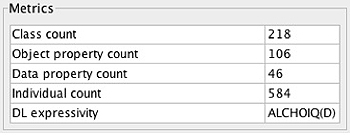
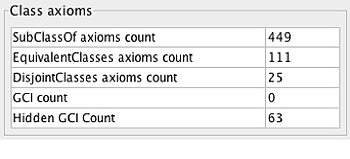
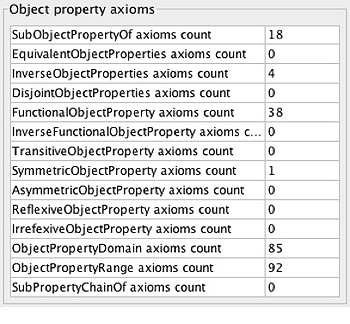
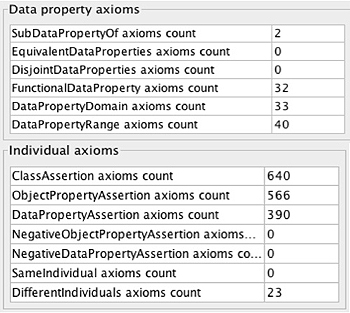
In the near future, the modularization of the ontology is foreseen, which will make it easier to re-use some specific parts of the overall ontology in other projects.
In parallel to ontology building, some modules for the multilingual support to node discovery have been implemented, which include a stemmer for Swedish, Finnish and English, a module for the translation of query terms in all project languages and a set of scripts for content distillation from environmental web sites.
The current basic ontology extension techniques in PESCaDO combine manual and automatic effort. In the future, we plan to include and evaluate more advanced solutions. Thus, we will extend the MoKi/KX interface in order to support the extraction of concepts from Swedish and Finnish documents. Furthermore, we will enrich the ontology with additional multilingual information, by providing at least the translation of a concept in all project languages as well as a synonym set. This will be performed automatically and will be used, for instance, to support node discovery through multilingual query generation. Another aspect we will investigate is the identification of the relations holding between concepts. Besides, the collaborative environment for ontology building and extension will be enriched with an evaluation module that will allow users to rank different ontologies and choose the one that best encodes a specific domain, represented by a corpus.
CONTACT:
Emanuele Pianta <pianta@fbk.eu>
Sara Tonelli <satonelli@fbk.eu>
